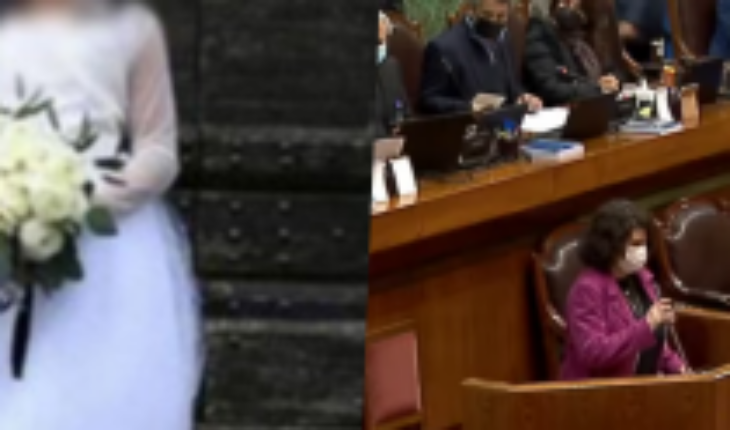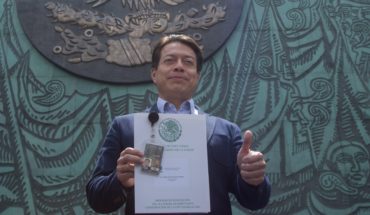This day the Chamber of the Chamber of Deputies approved the project that establishes the age of majority as an essential requirement for the celebration of marriage (bulletin 14700). The initiative, which had 118 votes in favor, 8 against and 17 abstentions, was sent to the Senate.
The objective of the proposal is to update Chilean regulations to international standards on the human rights of children and adolescents (NNA). In this line, it modifies the Civil Marriage Law, establishing the nullity of this contract with a minor. The bill also allows people who married as minors to apply for divorce unilaterally, without having to prove the “cessation of cohabitation.”
The bill was presented on November 11, following the report published in October by El Mostrador Braga: “They are girls!”: Children’s Ombudsman reveals that 135 marriages with adolescents have been carried out in Chile between 2018 and 2020, through which the studies on the subject carried out by the Office of the Ombudsman for Children were made visible.
The study “Adolescent marriage in Chile: a reality to eradicate”, carried out by the Observatory of Rights of the Office of the Ombudsman for Children at the end of August 2021, revealed that from 2015 to 2021 a total of 457 marriages involving adolescents have been contracted.
Regarding the age ratio, the average of adolescent women was 16.9 years, while that of men was 23, in a range that reaches up to 38 years. Therefore, it is mainly adult men who are interacting in the context of adolescent marriage.
Deputy Maite Orsini (Independent), at the time of voting, said that, “when we talk about adolescent or child marriage, we think of foreign cultures, in distant countries, but we never think of Chile. We think it’s a problem that just disappeared. We hear stories of mothers, aunts, grandmothers who as children were married against their will to adult men. But contrary to what we may think, this is a practice that is installed and that is perfectly legal. In Chile, adolescent marriage continues to exist because the law allows it.”
However, there were eight votes against the project, who argued against the proposal are the deputies of the Republican Party Committee Luis Sánchez, Leonidas Romero, Johannes Kaiser, Cristián Araya and Agustín Romero. Along with them, deputy Jorge Rathgeb (RN) also intervened.
The parliamentarians criticized that, for other matters, adolescents can make decisions as minors, which “reflects inconsistencies between the rules, which do not protect the right of parents to educate their children.”
They went on to argue that the bill would be an “attack on the institution of marriage.” This, given that, in this way, a woman with a teenage pregnancy would be left defenseless, preventing her child from having the “right to be born into a family”.
Other parliamentarians who voted in favor of the initiative, pointed out that this project is a “civilizing act”, since children have the right to freely enjoy this stage of their lives. Especially when it is known about the risks of suffering domestic, sexual and economic violence to which adolescents are exposed.
The defender of children, Patricia Muñoz, assures in this regard that, “it seems important to us that the work done by our institution allows Parliament to take those analyses that are carried out from an institution like ours, concerned with delivering evidence and studies that tend to the rights of children living in Chile, every day be more and better respected.”
In addition, he adds that, in that line, “it is evident that being able to obtain this legislation, with a very wide approval in the National Congress, is very good news”, since, although in his technical note it is seen that there have been decreases in terms of the number of marriages, it is an issue that continues to exist. “What is observed is that the age for them to marry is much lower in relation to men and, therefore, we see a very clear manifestation of how there is a need for a gender perspective, precisely to consider how the asymmetry of power is manifested, affecting women to a greater extent than men.”
The project is authored by the deputies, Marcos Ilabaca, Claudia Mix, Paulina Núñez, Maite Orsini, Ximena Ossandón, Catalina Pérez, Camila Rojas, Marcela Sandoval, Matías Walker and Gael Yeomans.
Follow us on





